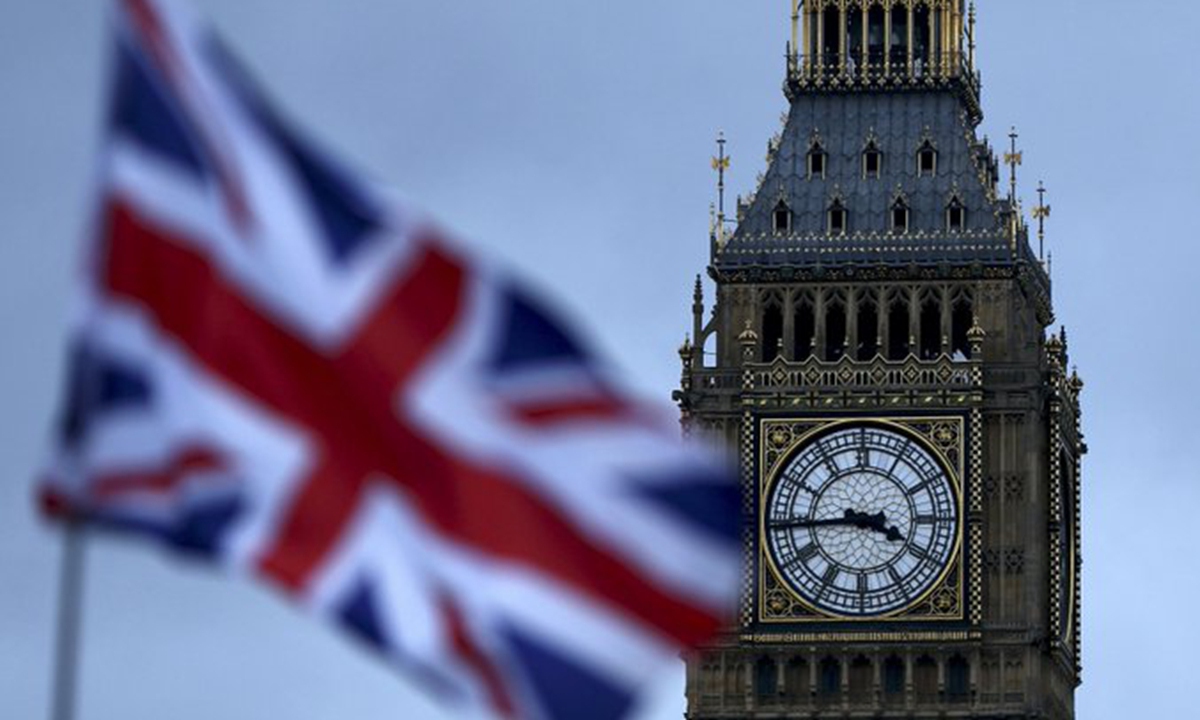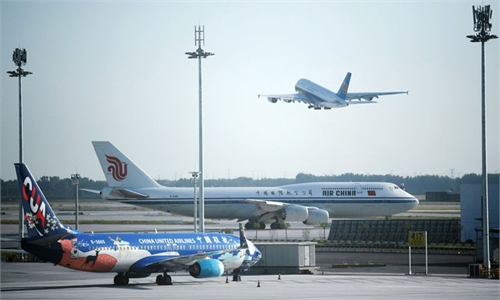COMMENTS / EXPERT ASSESSMENT
Britain’s plunging export to China reflects fraught relations with Beijing

File photo
Despite the severe COVID-19 impact on global trade, Chinese customs data showed on Thursday that Chinese trade has delivered marked growth in 2020. While the country has bought more goods and services from other major economies such as ASEAN and EU, its imports from UK dropped 17 percent year-on-year.As the country continues to open up its market to foreign countries to meet the rising consumer demands to improve their living standards, China's imports have become more diversified. The categories have expanded from luxury goods to a variety of increasingly customized services.
As an important exporter of the financial services in the world and the source of many famous brands, the UK's declining exports to the Chinese market is mainly because the "golden era" between China and UK has ground to a halt.
Citing the catch-all guise of "national security," London has followed the US government to impose discriminative measures on Chinese businesses and goods, taken a range of moves to politicize economic and trade issues that has caused severe impact on bilateral economic relationships.
Indeed, the UK government is not respecting China-UK cooperation, and has hurt the interests of many businesses from both economies. A number of UK companies have been frustrated with the UK' China policies. Thanks to the rising protectionism in UK, trade talks addressing a China-UK free trade agreements, called for by British businesses in China, have stalled now.
The UK has traditionally been a highly open trading economy, and China's investments in the UK once were more than the combined total of China's investments in Germany, France and Italy.
Suffering the dual blow of Brexit and COVID-19 pandemic, the British economy is facing its "darkest hour." Bank of England governor Andrew Bailey said on Tuesday that a wild resurgence in COVID-19 cases meant there would be difficult months ahead in Britain.
British finance minister Rishi Sunak warned Monday that more than 250,000 small firms could go bust this year, as the coronavirus-ravaged economy would get worse before it gets better.
Although UK has reached a last-minute trade agreement with EU, the UK government's Office for Budget Responsibility (OBR) forecast that, even with the deal, Britain still would see a loss of output of 4 percent over 15 years.
Furthermore, the current agreement between UK and EU has not covered many important sectors including financial services, and hasn't settled on many detailed issues, which largely increased the uncertainty of the UK economy in after-Brexit era.
The UK should stick to a more pragmatic approach and seek balance in pursuing relationships with other countries, rather than driven by domestic populism at home. Attributing Brexit issues to the EU is not conducive to fixing the country's emerging problems, and blaming China and arbitrarily interfering Chinese internal affairs will not help its economy to endure the current difficulty.
To point fingers on China over issues like Hong Kong will only cause more damage to the already fraught China-UK relationship. With a deteriorating bilateral relationship, more British businesses will be affected and will suffer losses.
After couple of years of a trade war against China, the US hasn't resolved the problems afflicting the US economy. Too much political interference in business is not in line with the basic rules of economic cooperation and will inevitably lead to negative consequences. The UK government should draw a due lesson and address the relationship with China before it totally loses opportunities in the most dynamic and promising market in the world.
If the UK continues to seek decoupling with China following Brexit, it will merely put its struggling economy in a more dangerous position.
UK should refuse interference of its own affairs by US government meddling, engage in earnest and faithful economic cooperation with China, to drive its much hoped for domestic economic recovery from the pandemic.
The author is Jean Monnet Chair Professor and Director of European Studies at Remin University of China. bizopinion@globaltimes.com.cn


